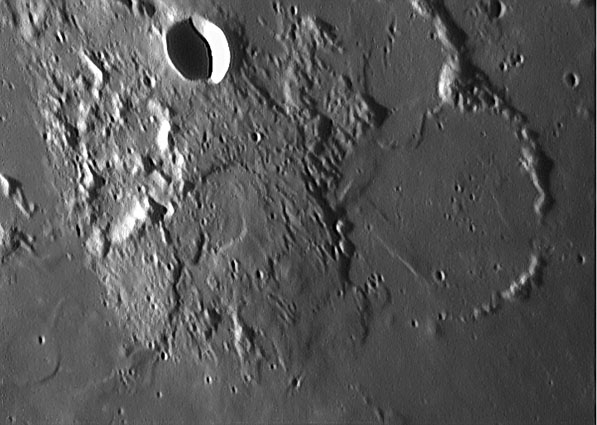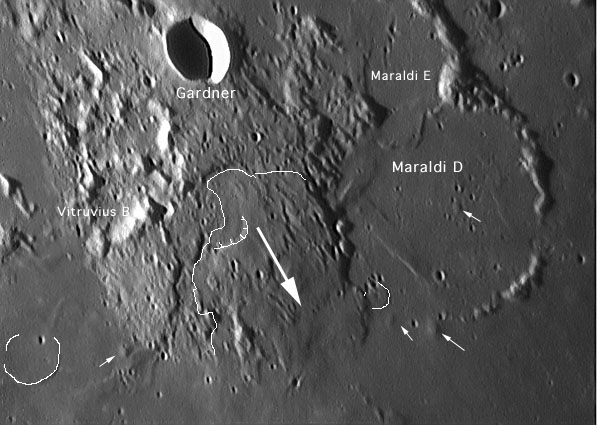September 26, 2004
Astonishing Megadome
Image Credit: Wes Higgins |
|
Astonishing Megadome Most features on the surface of the Moon are examples of familiar types: impact craters, collapse pits, crater rays, sinuous rilles, tectonic rilles, volcanic domes, etc. But there are a few features that are very unusual and the Gardner Megadome is one. Calling it a megadome puts it it a familiar context - its a big volcanic dome - but we are not certain that is a correct interpretation. This astonishing image by Wes Higgins provides new details to help understand this feature. The 70 km wide structure seems to have two distinct personalities. On its west side the texture is rough and there are a number of small impact craters. The center and eastern sides look smoothed, as if a pasty coating of material was smeared onto the surface. The line in the mouseover divides the megadome into these two types. Near the center of the structure is a 90 degree arc of a rim - I propose this is a volcanic crater rather than an impact one. Adding more speculation, the caldera or volcanic crater was the source of lava flows that covered the eastern portion of the megadome. With this interpretation, the break in the southern rim of the caldera appears to be a major drainage area, which carved a channel as lava flowed downhill to the mare. Certainly this is a volcanic area (duh - Mare Tranquillitatis laps against it) and there is a pitted dome immediately to the southeast and three small steep-sided domes or hills (arrows on mouseover). And do you know what is out of the picture to the northwest? The volcanically-rich area near Littrow crater. And to the southeast is another volcanic--tectonic concentration: Cauchy. The nature of the megadome itself is unclear. I doubt if it is entirely a volcanic structure, and would guess that it is high either because it's part of the ancient rim surrounding the Tranquillitatis and Serenitatis basins, or it was uplifted by magma from below. My interpretation is not standard, but I doubt if there is a "standard" understanding for this peculiar mountain. Technical Details: Related Links: Yesterday's LPOD: Trough and Pancake Tomorrow's LPOD: Petavius Naked! |
|
Author & Editor: |
COMMENTS?
Register, Log in, and join in the comments.





